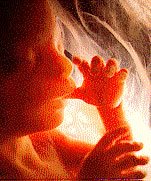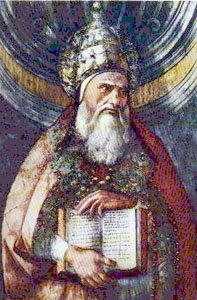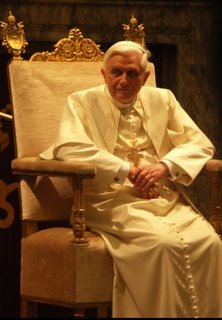Today is Respect Life Sunday! Please join me in a pro-life Blogburst.
The purpose of this blogburst is to raise awareness of the evils of abortion and the need for legal protection of the unborn child. I ask all of you fellow bloggers to please join me in posting 2-3 paragraphs on a pro-life theme on your blog. I would ask that you do it as early as possible on Sunday. This way, it’ll give more time for word about your post to spread.
 My Contribution
My Contribution:
Abortion is murder! It is evil! It is the greatest form of genocide and terrorism because it murders children from every race and creed. No one is protected from the murder of abortion. We must come together in peace, under the banner of Heaven's Kingship, to proclaim the worth of all children. I ask that you say a special prayer today for all of those children that have already been condemned to death this year. I ask you to say a prayer for their little souls, that they, although unbaptized, may enter God's mercy and peace in Heaven.
We can work together and peacefully end abortion. Just as the Holocaust in World War II ended, so too can the Holocaust of the unborn end through peaceful means. Already this year, numerous abortion clinics have closed including one in Florida, Wichita, Kansas, Buffalo, NY, Missouri, and one in Omaha.
From the Catechism of the Catholic Church:
2271. "Since the first century the Church has affirmed the moral evil of every procured abortion. This teaching has not changed and remains unchangeable. Direct abortion, that is to say, abortion willed either as an end or a means, is gravely contrary to the moral law: You shall not kill the embryo by abortion and shall not cause the newborn to perish. [
Didache
2, 2: SCh 248, 148; cf. Ep. Barnabae 19, 5: PG 2, 777; Ad Diognetum 5, 6: PG 2, 1173; Tertullian, Apol. 9: PL 1, 319-320.] God, the Lord of life, has entrusted to men the noble mission of safeguarding life, and men must carry it out in a manner worthy of themselves. Life must be protected with the utmost care from the moment of conception: abortion and infanticide are abominable crimes. [GS 51 # 3.]"
2272. "Formal cooperation in an abortion constitutes a grave offense. The Church attaches the canonical penalty of excommunication to this crime against human life. 'A person who procures a completed abortion incurs excommunication latae sententiae,' [CIC, can. 1398.] 'by the very commission of the offense,' [CIC, can. 1314.] and subject to the conditions provided by Canon Law. [Cf. CIC, cann. 1323-1324.] The Church does not thereby intend to restrict the scope of mercy. Rather, she makes clear the gravity of the crime committed, the irreparable harm done to the innocent who is put to death, as well as to the parents and the whole of society."
2274. "Since it must be treated from conception as a person, the embryo must be defended in its integrity, cared for, and healed, as far as possible, like any other human being. Prenatal diagnosis is morally licit, 'if it respects the life and integrity of the embryo and the human fetus and is directed toward its safe guarding or healing as an individual.... It is gravely opposed to the moral law when this is done with the thought of possibly inducing an abortion, depending upon the results: a diagnosis must not be the equivalent of a death sentence.' [CDF, Donum vitae I, 2.]"
2322. "From its conception, the child has the right to life. Direct abortion, that is, abortion willed as an end or as a means, is a 'criminal' practice (GS 27 # 3), gravely contrary to the moral law. The Church imposes the canonical penalty of excommunication for this crime against human life."
ABORTION STOPS A BEATING HEART!
Prayer to End Abortion
Lord God, I thank you today for the gift of my life, And for the lives of all my brothers and sisters.I know there is nothing that destroys more life than abortion, Yet I rejoice that you have conquered death by the Resurrection of Your Son.I am ready to do my part in ending abortion. Today I commit myself Never to be silent, Never to be passive, Never to be forgetful of the unborn.I commit myself to be active in the pro-life movement, And never to stop defending life Until all my brothers and sisters are protected, And our nation once again becomes A nation with liberty and justice Not just for some, but for all.Through Christ our Lord. Amen!
 I have just posted the Rosary Intentions for October for the Catholic Community Forum (CCF). Please read them and pray for them.
I have just posted the Rosary Intentions for October for the Catholic Community Forum (CCF). Please read them and pray for them.














